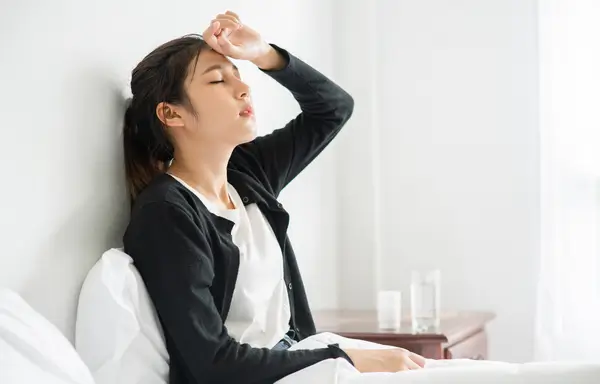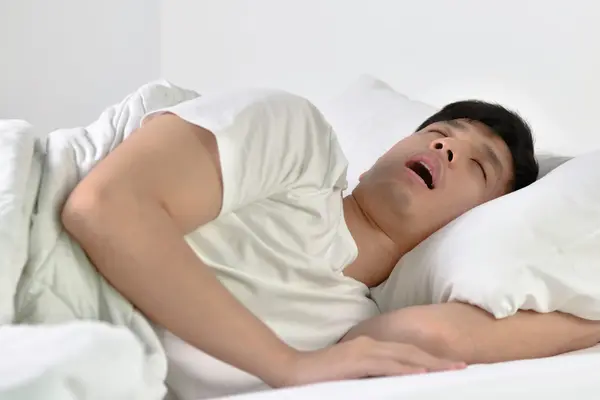Topics
Insomnia: What Is It
What is insomnia? Insomnia is a common sleep disorder where it is hard to fall asleep or stay asleep. Even with enough time in bed, people with insomnia get too little or poor-quality sleep, and often feel tired or unrefreshed during the day. Insomnia can be short-term (lasting days or weeks) or chronic if it occurs at least three nights a week for three months or longer. In fact, about one in ten adults has chronic insomnia, and many more have occasional sleep troubles.
Who Is at Risk for Insomnia
Insomnia can affect anyone, but certain people are more likely to develop it:
Older Adults
The likelihood of insomnia increases with age. Natural changes in the body clock and increased health issues in older age make sleep more fragile. For example, after 60, sleep quality often declines, and waking during the night becomes more frequent.
Women
Insomnia is more common in women than men. Hormonal changes linked to the menstrual cycle, pregnancy, and menopause can disrupt sleep (Emeh, 2023). Women are also more likely to experience conditions such as depression or anxiety, which further raise the risk of insomnia.
People under stress or with mental health issues
High stress, anxiety, or depression can keep the mind active at night, making it hard to switch off and fall asleep. For example, worrying about work or family problems can trigger insomnia. In general, anyone facing emotional distress (such as after a divorce or loss) has a higher risk of insomnia.
Shift workers and travellers
Working irregular hours (such as night shifts) or frequently changing time zones can disrupt the body’s sleep–wake cycle. Shift work or jet lag makes it difficult for the brain to determine when to feel sleepy, so these groups often develop insomnia.
People with chronic health problems or pain
Long-term physical conditions can interfere with sleep. For instance, persistent pain often awakens people at night, and breathing problems like sleep apnoea can lead to repeated nighttime awakenings. Other conditions (such as Parkinson’s disease, an overactive thyroid, or menopausal symptoms) can also make sleeping difficult.
Unhealthy sleep habits or lifestyle
Certain habits increase the risk of insomnia. Going to bed at very different times each night, taking long naps during the day, or spending excessive time on devices before sleep can all make it harder to sleep soundly. Using caffeine, nicotine, or alcohol in the evening can also disturb sleep. Lack of regular exercise and spending little time outdoors (poor “daytime drive” for the body clock) are additional risk factors (Castro-Santos et al., 2023).
Financial or social hardship
People experiencing chronic financial stress or unstable living conditions tend to have more insomnia. Research indicates that socio-economic hardships (such as low income or job insecurity) increase vulnerability to sleep problems. In short, daily pressures and worries about money or housing can lead to insomnia.
When to Seek Help
If you have occasional sleepless nights, simple self-care (like a regular bedtime and reducing caffeine) often helps. But consult a doctor or nurse if sleep problems continue for weeks or months or start to seriously affect your life. For example, seek medical advice if you consistently cannot sleep through the night for several weeks, or if insomnia makes you so exhausted that it affects your work, mood, or daily routines.
A healthcare professional can explore underlying causes and offer treatment. Effective options include cognitive behavioural therapy for insomnia (CBT-I), stress management, and other sleep-friendly approaches. Do not hesitate to ask for help; insomnia is common and treatable.
FAQs: Frequently Asked Questions
1. What is insomnia?
Insomnia is a sleep disorder that makes it hard to fall asleep, stay asleep, or get good-quality sleep, even when you have enough time to rest. This can lead to fatigue, poor concentration, and mood disturbances during the day.
2. Who is more likely to get insomnia?
People at higher risk include older adults, women, especially during pregnancy or menopause, people with stress, anxiety, or depression, those with chronic illness or pain, shift workers or frequent travellers, and anyone with poor sleep habits or irregular schedules.
3. Is insomnia treatable without medication?
Yes. Many people improve with non-drug approaches like cognitive behavioural therapy for insomnia (CBT-I), better sleep routines, reducing caffeine, and managing stress. Medication may be used in some cases, but it is usually a short-term solution.
4. Can lifestyle changes help with insomnia?
Absolutely. Regular sleep times, cutting down on screen time before bed, exercising during the day, and avoiding caffeine or heavy meals before bedtime can all help improve sleep naturally.
Book an Appointment at Gleneagles Hospitals
If you or someone you care about is experiencing difficulty falling asleep, waking up often during the night, or feeling tired despite spending enough time in bed, it may be a sign of insomnia. Recognising these symptoms early can help prevent long-term effects such as fatigue, poor concentration, mood changes, and weakened immunity. With the right support and lifestyle changes, better sleep is achievable.
Do not wait—book your appointment today and start your journey toward better health. Our team is here to support you every step of the way. You may also book an appointment via our website or download the MyHealth360 application from the Google Play Store or Apple App Store.
Reference
Castro-Santos, L., Lima, M. de O., Pedrosa, A. K. P., Serenini, R., de Menezes, R. C. E., & Longo-Silva, G. (2023). Sleep and circadian hygiene practices association with sleep quality among Brazilian adults. Sleep Medicine: X, 6, 100088. https://doi.org/10.1016/j.sleepx.2023.100088
Emeh, J. (2023, August 8). What Causes Insomnia in Women? Healthline; Healthline Media. https://www.healthline.com/health/insomnia/causes-of-insomnia-in-females
National Heart, Lung, and Blood Institute. (2022, March 24). Insomnia - what is insomnia? Www.nhlbi.nih.gov. https://www.nhlbi.nih.gov/health/insomnia



.webp?sfvrsn=58e79b70_9)




